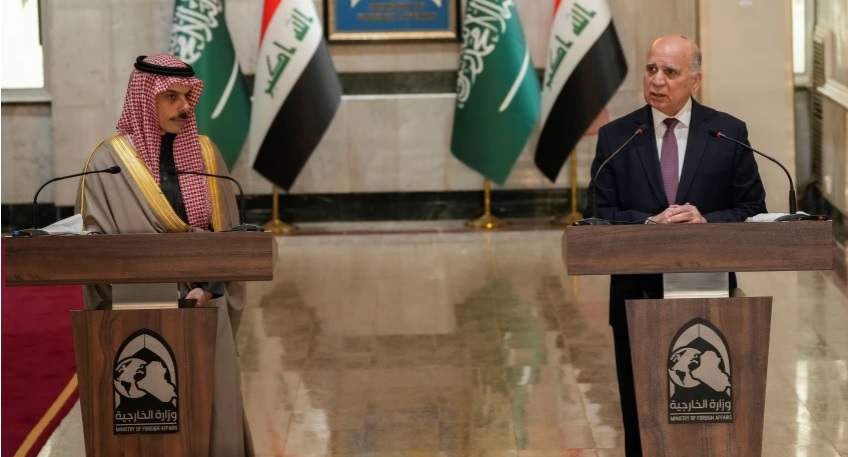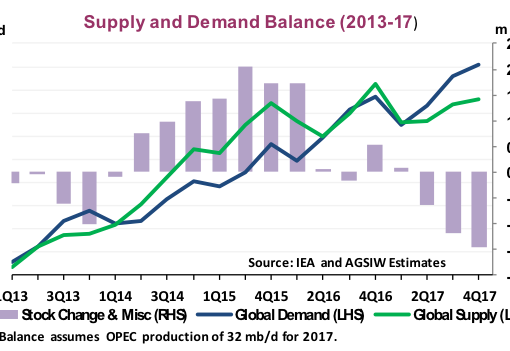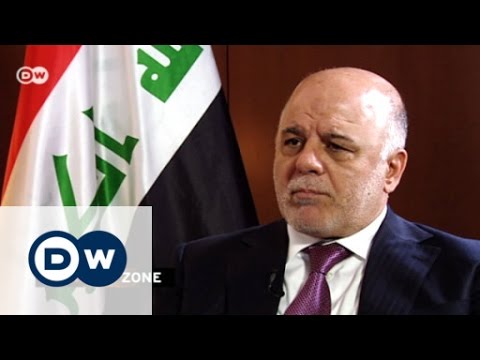On July 3, Saudi Arabia and the United Arab Emirates reached an agreement with Iraq to invest $3 billion each in the country, signaling an expansion of investments by the Gulf states at a time when Iraq continues to seek financing for postwar reconstruction and development of its infrastructure. Iraqi Prime Minister Mohammed Shia Al Sudani said in June that, having “regained its normal position and role in the region,” the country’s growing stability “makes it a promising environment” for investment projects. The recently announced deal suggests that Riyadh and Abu Dhabi agree.
That represents a significant change. Over the past two decades, Iran has used its political influence in Baghdad, enabled by Tehran-backed militias, to consolidate a strong position in various sectors of Iraq’s economy, particularly energy. It currently supplies approximately 40 percent of the country’s electricity consumption, but it has recently been unable to meet growing demand. Now competition for investments in Iraq, and the economic influence that goes along with them, has become increasingly intense, with Saudi Arabia and the UAE leading the charge.
During Iraq’s civil war period, Riyadh’s relations with Baghdad faltered due to the latter’s close ties with Tehran. At that time, the Iraqi government accused Saudi Arabia of supporting Sunni insurgencies in the country. Diplomatic relations, which had been severed during Saddam Hussein’s rule, were only restored in 2015, but subsequent tensions resulted in the recalling of ambassadors. Riyadh’s current investment push has its origins in a thaw that began three years ago with the normalization of ties in May 2020, followed that November by the reopening of the Arar border crossing after nearly three decades of closure.
Since then, Saudi Arabia and the UAE have actively sought investments in Iraq, and that effort has gathered pace this year, with Riyadh allocating funds to support investments in infrastructure, mining, agriculture, real estate development and financial services. Baghdad has also extended an invitation to Saudi Aramco to invest in and develop the Akkas gas field in western Iraq, which has the potential to yield 400 million cubic feet of gas per day.
In February, a meeting between Al Sudani and UAE President Mohammad bin Zayed aimed to enhance Abu Dhabi’s investment portfolio as well. Baghdad subsequently signed deals with the Emirati firm Crescent Petroleum, along with two Chinese companies, to develop oil and gas fields in northeastern Iraq.
In addition to Saudi Arabia and the UAE, Qatar has also increased its commitment to investing in Iraq. In June, Doha agreed to contribute $9.5 billion toward various projects, including a power plant, although specific timelines and detailed plans have yet to be confirmed. Qatar’s investments will also encompass the health care and hospitality sectors.
Indicating the potential for these initiatives to create tensions, Tehran-backed groups within Iraq have criticized Riyadh’s involvement as “Saudi colonialism,” with particular accusations over the potential for investments to be “weaponized” against Shiite regions. Underlying the criticism is their recognition that Saudi investments could undermine Iran’s influence. In November 2020, Saudi Arabia had to abandon plans to invest in Iraq’s agricultural sector due to similar opposition. Riyadh proposed new agricultural investments in March, but there are concerns that opposition within Iraq may once again hinder any progress.
As regional and global powers vie to secure investments in Iraq, ongoing rivalries, opposition from different Iraqi factions and corruption have presented significant challenges.
The UAE’s investments have generated similar criticisms and even security risks, as indicated by a drone attack on Abu Dhabi in February 2022 claimed by an Iraqi faction as a response to Emirati “interference” in Iraq and Yemen. Yet in contrast to Riyadh, Abu Dhabi has taken a different approach, engaging with armed Iraqi factions like Kataib Hezbollah and Asaib Ahl Al-Haq through soft power and diplomacy. The goal of this strategy is deescalation in order to secure Emirati investments, rather than a focus on sidelining Iranian influence.
Meanwhile, the competition is not limited to Iraq’s neighbors in the Gulf. Since 2021, France has also actively sought to strengthen its strategic and economic relations with Baghdad, aiming to fill the void left by the withdrawal of U.S. forces from the country that year. This culminated in the establishment of a strategic partnership between France and Iraq in January 2023, focusing on security, anti-corruption measures and cultural ties. Bilateral cooperation has also opened the door for French companies to access Iraqi markets, including a $27 billion investment from TotalEnergies that was ratified on July 11 after years of delays. The deal will give TotalEnergies the largest stake in Basra Oil Company, followed by Iraq’s government and QatarEnergy.
Though aiming to fill the U.S. vacuum in Iraq, France’s influence remains limited, particularly compared to China. Beijing has similarly taken advantage of Washington’s reduced engagement in Iraqi reconstruction efforts to become the largest investor in the country. China has integrated Iraq into its Belt and Road Initiative and secured access to Iraq’s oil market through its oil-for-reconstruction agreement in 2019, with energy being a leading focus of Chinese infrastructural investments. Showcasing the agreement’s success, over half of Iraq’s current oil production originates from oil fields where Chinese companies either operate or hold non-operating partnerships.
Due to its amicable relations with Iraq’s Gulf neighbors, China has faced fewer obstacles to its investments. In fact, even operations in oil and gas fields in areas under the control of Iranian-backed militias have proceeded smoothly, due to Beijing’s close relations with Tehran. Indeed, China’s Comprehensive Strategic Partnership with Iran, which was finalized in 2021, demonstrates its intent to centralize and link both Iran and Iraq within its BRI framework in the Middle East.
On the other hand, there have been some domestic fears over Iraq’s energy sector becoming a China-led industry. In 2021, as plans by Lukoil, Exxon Mobil and BP to sell stakes to China emerged, Iraq’s Oil Ministry intervened to prevent Chinese firms from gaining more control over its oilfields. Although such concerns may persist, Beijing has already become a major player in Iraq’s oil industry, and other actors, particularly the Gulf states, will need to navigate around its influence. For now, that doesn’t seem to pose any great obstacle, as evidenced by China and the UAE collaborating on development projects, as previously noted.
As all these various regional and global powers vie to secure investments and economic influence in Iraq, ongoing rivalries, opposition from different Iraqi factions and corruption have presented significant challenges to foreign investments, hampering prospects for growth. Ultimately, the success of regional and global investments in reinvigorating Iraq’s economy will depend on the country’s stability.
Despite these obstacles, however, recent developments are moving in the right direction for Baghdad. There are glimmers of hope that the increased foreign investment can address pressing issues, such as unemployment and infrastructure gaps, by creating more job opportunities in the private sector, while boosting Iraq’s capabilities to export more energy.
But despite facing challenges to its previous sway in Baghdad, Tehran still maintains leverage through its support of Iraqi politicians and militias, with implications for Iraqi sovereignty. Given Iran’s influence, Iraq is still far from being integrated back into the Arab fold. And although the recent détente between Tehran and Riyadh, as well as continued dialogue between Iran and the Gulf states, may ease tensions, Saudi Arabia and the UAE will have to carefully navigate Iraq’s political and economic landscape to ensure that their investments can succeed. But the fact that their economic plans have such a long-term time horizon indicates their optimism that this can be achieved.
Jonathan Fenton-Harvey is a British analyst and journalist whose work has focused largely on Gulf Cooperation Council affairs, as well as geopolitical and economic issues pertaining to the wider Middle East and Indo-Pacific. He has worked with or written for a wide range of think tanks and publications based in the U.S., the U.K. and the Middle East.
Source: World Politics Review








Comment here